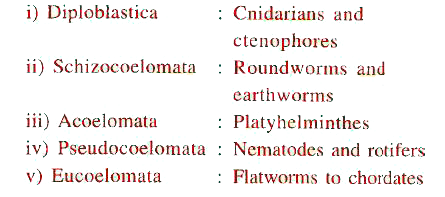Which of the following is correct?
A real gas approaches ideal gas behaviour at low pressure and high temperature
Liquification of a real gas is possible at low temperature and high pressure
Both of them
None of them
To solve the question "Which of the following is correct?" regarding the behavior of real gases, we will analyze each statement provided in the options step by step.
Step 1: Analyze the First Statement
The first statement claims that "a real gas approaches ideal gas behavior at low pressure and high temperature."
- Explanation: According to the kinetic molecular theory and the Van der Waals equation, real gases behave more like ideal gases under conditions of low pressure and high temperature. At low pressure, the volume of the gas molecules becomes significant compared to the volume of the container, and at high temperature, the kinetic energy of the gas molecules increases, overcoming intermolecular forces. Thus, the effects of the Van der Waals constants (A and B) become negligible, allowing the gas to behave ideally.
- Conclusion: The first statement is correct.
Step 2: Analyze the Second Statement
The second statement claims that "liquefaction of a real gas is possible at low temperature and high pressure."
- Explanation: Liquefaction of gases occurs when intermolecular forces of attraction become significant enough to overcome the kinetic energy of the gas molecules. This can be achieved by increasing the pressure (which brings molecules closer together) and decreasing the temperature (which reduces kinetic energy). Therefore, for a gas to liquefy, it is necessary to have high pressure and low temperature.
- Conclusion: The second statement is also correct.
Step 3: Analyze the Options
Now that we have evaluated both statements:
- Option 1: The first statement is correct.
- Option 2: The second statement is correct.
- Option 3: Both statements are correct.
- Option 4: None of the statements are correct.
Since both statements are correct, the answer is:
Final Answer:
Option 3: Both of them.
---
The first statement claims that "a real gas approaches ideal gas behavior at low pressure and high temperature."
The second statement claims that "liquefaction of a real gas is possible at low temperature and high pressure."
Now that we have evaluated both statements:
- Option 2: The second statement is correct.
- Option 3: Both statements are correct.
- Option 4: None of the statements are correct.
Option 3: Both of them.
Topper's Solved these Questions
- STATES OF MATTERBOOK - AAKASH INSTITUTE ENGLISHCHAPTER - STATES OF MATTEREXERCISE - TRY YOURSELF
34 Videos
- STATES OF MATTERBOOK - AAKASH INSTITUTE ENGLISHCHAPTER - STATES OF MATTEREXERCISE - ASSIGNMENT (SECTION-A)
50 Videos
- STATES OF MATTERBOOK - AAKASH INSTITUTE ENGLISHCHAPTER - STATES OF MATTEREXERCISE - ASSIGNMENT (SECTION-D)
14 Videos
- SOME BASIC CONCEPTS OF CHEMISTRY BOOK - AAKASH INSTITUTE ENGLISHCHAPTER - SOME BASIC CONCEPTS OF CHEMISTRY EXERCISE - ASSIGNMENT SECTION J (Aakash Challenges Questions)
10 Videos
- STRUCTURE OF ATOMBOOK - AAKASH INSTITUTE ENGLISHCHAPTER - STRUCTURE OF ATOMEXERCISE - ASSIGNMENT (SECTION -D) Assertion-Reason Type Questions
15 Videos
Similar Questions
Which of the following are correct ?
View SolutionWhich of the following are correct?
View SolutionWhich of the following are correct?
View SolutionWhich of the following are correct?
View SolutionWhich of the following are correct?
View SolutionWhich of the following are correct processes ?
View SolutionWhich of the following are correct reactions ?
View SolutionWhich of the following are correct
View SolutionWhich of the following are correct statements?
View SolutionWhich of the following are correct ?

View Solution
